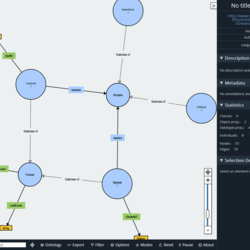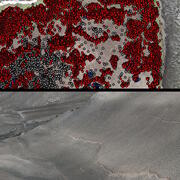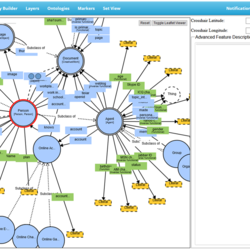Artificial intelligence (AI)
Center of Excellence for Geospatial Information Science (CEGIS)
Artificial intelligence (AI) is a smart way that computers help us find answers and solve problems.
It uses different techniques like feature extraction, pattern recognition, and natural language processing. AI lets computers learn from lots of data and use that knowledge to answer our questions based on logical patterns found in the data.
Foundations
In the context of AI, foundations refer to the fundamental theories and principles that form the basis of artificial intelligence.
This includes concepts like algorithms, data structures, logic, and mathematics used to develop AI systems.
Foundations in AI are like the building blocks or basic ideas that help create artificial intelligence.
Machine learning (ML)
Machine learning (ML) is a type of technology that uses algorithms to find patterns and make predictions based on examples, like recommending movies based on past preferences.
CEGIS uses machine learning to map terrain features and analyze landscapes, which helps with planning and managing the environment.
Ontologies
Ontologies in AI refer to structured representations of knowledge that organize information into categories and define relationships between them.
They help computers understand the meaning of data by defining concepts, properties, and how they relate to each other.
CEGIS uses ontologies to build systems that can analyze complex data and make informed decisions.




